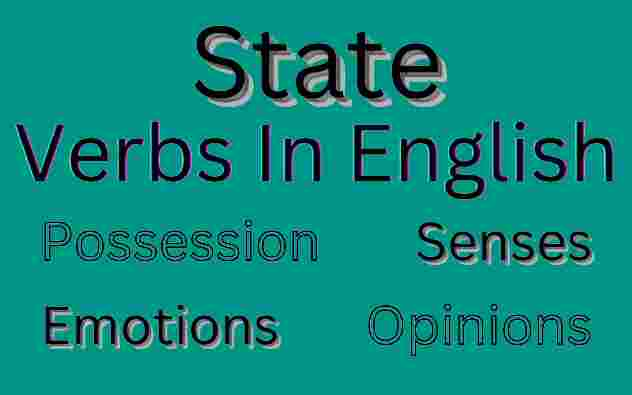State verbs describe a state, condition, or perception. we do not use the continuous tense. The state can be physical, mental, or emotional.
State verbs express states or conditions which are relatively static. They include verbs of perception, cognition, the senses, emotion, and state of being:
The first sentence expresses an opinion. It is a mental state, we use present simply. In the second example, the speaker is actively processing thoughts about something. It is an action in progress, we use present continuous.
What Is A State Verb?
State verbs help us describe a state of being or a state of mind. State verbs usually refer to emotions, senses, beliefs, opinions, relationships, possessions, and states of being. We use the simple tenses for them. The best way to teach stative verbs is to introduce them according to function.

Level: beginner
Read: https://learnenglish.britishcouncil.org/
The first sentence expresses an opinion. It is a mental state, we use present simply. In the second example, the speaker is actively processing thoughts about something. It is an action in progress, we use present continuous.
Note: We do not use state verbs in continuous prepositional phrases or after certain verbs that require Ing:
A verb describes a state and not an action we do not use the continuous tense. Some words can be state verbs and action verbs. Take a look at these:
We use State Verbs:
Possession:
- She has had this red car for ten years.
- You have had a bike school time.
- I have had a tablet childhood.
Senses:
- The vegetable smells delicious.
- He saw a great film yesterday night.
- I have heard music yesterday evening.
Emotions:
- I need a job nowadays.
- He needs a bike for the office.
- You help her school uniform.
Opinions:
- She has had a car for five years.
- He has used a laptop for five years.
- We have known all our friends my childhood.




